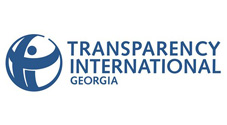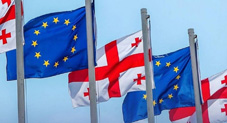
TI: Anti-corruption policy fails to fulfill Association Agreement
By Nika Gamtsemlidze
Wednesday, June 12
Transparency International Georgia published a report that examines the corruption and anti-corruption policies in Georgia.
The Association Agreement (AA) between the European Union and Georgia, as well as the Association Agenda for 2017-2020 to facilitate the implementation of the AA, in addition to other aspects, envisages cooperation between the parties in combating corruption.
“Over the year and a half since the adoption of the current Association Agenda, Georgia has attained positive results in terms of maintaining previous achievements in terms of eradicating petty corruption. However, Georgia’s progress in tackling high-level corruption remains weak,” reads the report of TI.
As the report says, according to public opinion surveys, citizens have a negative view of both the overall situation in the country in terms of corruption and the dynamics of this situation. They believe that the government does not adequately investigate the cases of corruption involving high-ranking officials or influential individuals with ties to the ruling party.
“Ineffectiveness of the law enforcement agencies in terms of addressing high-level corruption is largely a result of the current nature of the political system: the concentration of power in the hands of a single political party, which makes it possible for this party to exert undue influence on the activities of these and other public institutions,” reads the report.
In addition, TI reports that the National Action Plan for 2018 approved by the Government of Georgia to facilitate the implementation of the Association Agreement and the Association Agenda, was mainly focused on the activities of technical nature (especially training sessions), which are useful by themselves, but cannot address the above-mentioned systemic problems.
“To overcome these systemic problems, the Georgian authorities must establish an independent anti-corruption agency and ensure its protection from partisan influence, on the one hand, while also promoting, in the long run, the establishment of a more pluralistic political system. Replacing the mixed electoral system with a fully proportional one would be the first important step forward,” reads the report published on the official website of TI.
Transparency International Georgia (TI Georgia) was established on May 7, 2000, as a local non-governmental organization committed to combating corruption in Georgia through the promotion of transparency and accountability.
The EU and Georgia signed an Association Agreement in June 2014, which entered into force on July 1, 2016. It aims to deepen political and economic relations between the EU and Georgia.


